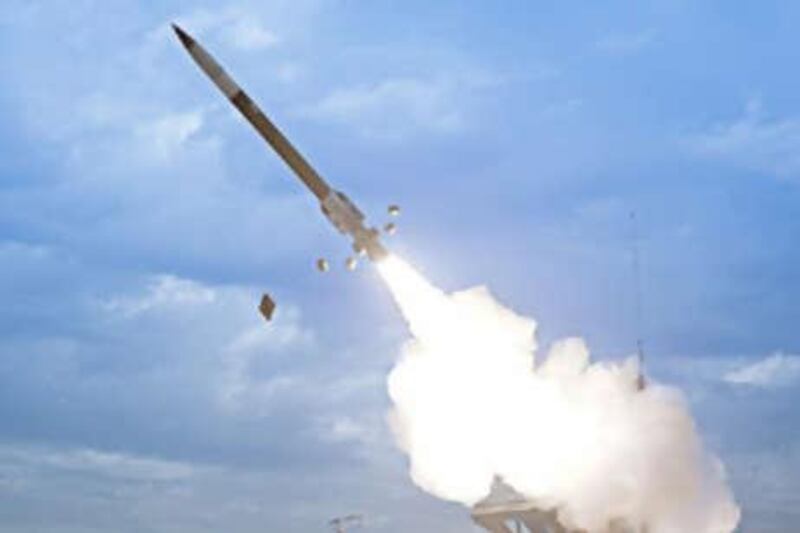ABU DHABI // The UAE should purchase specialised missile systems to protect itself from cruder, short-range missiles that its more sophisticated defence systems might miss, defence experts said yesterday. During the two-day Middle East Missile and Air Defence Symposium that ended yesterday, defence specialists and retired army generals discussed missile and rocket threats in the region, including to the Emirates.
The UAE is expected to finalise a deal before the end of the year with the US government to buy the Patriot Advanced Capability-3 (PAC-3) system for almost US$9 billion (Dh33.03bn). The US Congress in October approved a request to sell the UAE the more advanced Terminal High Altitude Area Defence (THAAD), for nearly US$7bn. Talks are underway on the specifics of the THAAD system to be installed in the Emirates.
Conference participants agreed that the UAE and other countries in the region ought to have the more advanced defence systems, but also urged them to invest in systems that could bring down short-range rockets and repel seaborne attacks. Dr Francois Gere, the president of the French Institute for Strategic Analysis, cited the example of Iran's Zelzal ballistic missile, which has a reported range of 200-400km and flies at a relatively low altitude, but cannot be intercepted by the PAC-3 or the THAAD.
"If you buy too many of PAC-3 or THAAD, you buy very high technology, expensive technology which by itself cannot help you against relatively crude missiles," Dr Gere said on the sidelines of the conference. High-ranking military officials from the US, UAE and several GCC countries attended the symposium the capital. It was held under the patronage of Sheikh Mohammed bin Zayed, Crown Prince of Abu Dhabi and Deputy Supreme Commander of the UAE Armed Forces, and organised by the Institute of Near East and Gulf Military Analysis.
Military experts said technology to intercept short-range missiles and rockets was available and affordable, but advanced early-warning and radar systems were required to spot the threats. The experts said it was impossible to completely repel showers of crude rockets with current technologies, such as those fired by Hizbollah at Israel during their war in the summer of 2006. "When it comes to short-range rockets it would be extremely difficult to get high rate of interception," said Dr Gere.
Major General Peter Vangjel, of the US Army Field Artillery School, said the UAE was negotiating to acquire the technology to respond to small rocket attacks. "What they [the UAE] don't have, they tap into allies for support," he said, adding that there were "a number of different capabilities that we can bring to deal with the problem". "There is sensor capabilities, there is a delivery capability, there is what we call the human intelligence capability," he said.
The region, Dr Gere added, needed anti-missile systems, despite questions over their effectiveness and costs. "If you have a rate of interception of 80 per cent, you will get 20 per cent of the rounds which have been shot so you decrease enormously the amount of damage," he said. "There will never be 100 per cent protection, 100 per cent interception. It doesn't exist in the real world and it will never exist. Everyone knows that."
Dr Gere also suggested the UAE ought to work on its defence system for attacks coming from the sea because of oil rigs on the Arabian Gulf and strategic facilities in coastal areas. "It is easier to defend when the threat comes from the sea," he said. "You can think of targets coming from the coast which can be attacked by rockets from the land." mhabboush@thenational.ae






